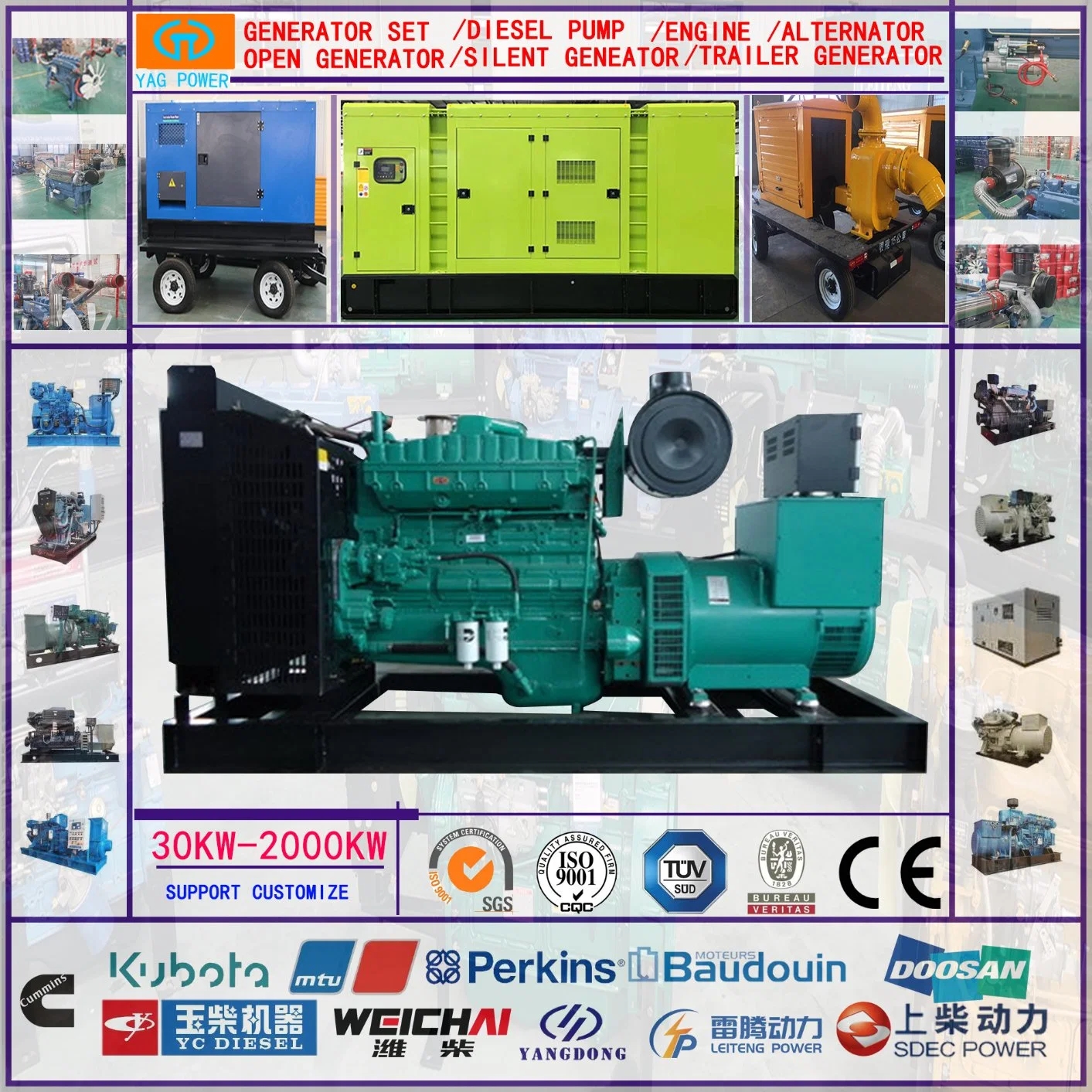Introduction
In today’s fast-paced world, reliable power supply is essential for businesses, industries, and individuals alike. When the grid fails, having a backup power source becomes crucial to ensure continuity in operations and prevent costly downtime. Diesel generators have long been a popular choice for backup power due to their reliability, efficiency, and cost-effectiveness. In this article, we will explore the role of diesel generators in ensuring quality assurance, their key features, maintenance requirements, and best practices for optimal performance.
Role of Diesel Generators in Quality Assurance
Quality assurance is a critical aspect of any business or operation, ensuring that products and services meet the required standards and specifications. In industries such as manufacturing, healthcare, telecommunications, and data centers, even a momentary power interruption can have severe consequences, leading to financial losses, damage to equipment, and compromise in service delivery. Diesel generators play a vital role in quality assurance by providing a reliable and immediate source of backup power during grid outages or fluctuations.
Key Features of Diesel Generators
1. Reliability: Diesel generators are known for their reliability and robustness, making them a preferred choice for backup power applications. Unlike other fuel sources, diesel fuel is less volatile and more stable, ensuring consistent performance even in adverse conditions.

2. Efficiency: Diesel generators are highly efficient in converting fuel into electricity, offering a cost-effective solution for backup power. With advancements in technology, modern diesel generators are designed to be more fuel-efficient, reducing operational costs and environmental impact.
3. Power Output: Diesel generators are available in a wide range of power outputs, from small portable units for residential use to large industrial generators for commercial applications. This flexibility allows businesses to choose a generator that meets their specific power requirements.
4. Quick Start-Up: One of the key advantages of diesel generators is their ability to start up quickly and provide power within seconds of a grid outage. This rapid response time is crucial for ensuring uninterrupted operations and minimizing downtime.
Maintenance Requirements for Diesel Generators
To ensure the reliability and longevity of diesel generators, regular maintenance is essential. Proper maintenance not only extends the life of the generator but also ensures optimal performance when it is needed most. Some key maintenance requirements for diesel generators include:
1. Regular Inspections: Periodic visual inspections of the generator, fuel system, cooling system, and electrical components are necessary to identify any signs of wear, leaks, or damage. These inspections help in detecting potential issues early and prevent costly repairs down the line.
2. Fuel Monitoring: Diesel fuel quality is crucial for the proper functioning of the generator. Regular monitoring of fuel levels, cleanliness, and storage conditions is essential to prevent fuel contamination and ensure smooth operation.
3. Oil Changes: Regular oil changes are necessary to keep the engine lubricated and running smoothly. Dirty or degraded oil can cause engine damage and reduce efficiency. It is important to follow the manufacturer's recommendations for oil change intervals and use high-quality oil suitable for diesel engines.
4. Battery Maintenance: Diesel generators rely on batteries to start the engine and provide auxiliary power. Regular battery inspections, cleaning, and testing are essential to ensure proper functioning and prevent unexpected failures during a power outage.
5. Load Testing: Periodic load testing of the generator is important to verify its capacity and performance under varying loads. This helps in identifying any issues with the generator's output and ensures that it can meet the power requirements of the connected loads.
Best Practices for Optimal Performance
In addition to regular maintenance, following best practices can help optimize the performance of diesel generators and ensure reliable backup power supply. Some key best practices include:
1. Proper Sizing: It is essential to select a diesel generator that is properly sized to meet the power requirements of the connected loads. Undersized generators may struggle to power all the equipment, while oversized generators can lead to inefficient operation and increased fuel consumption.
2. Fuel Quality: Using high-quality diesel fuel is crucial for the reliable operation of the generator. Contaminated or degraded fuel can clog fuel filters, injectors, and damage the engine. Regular fuel testing and filtration are recommended to maintain fuel quality.
3. Regular Exercise: Diesel generators should be exercised regularly to ensure that they are in good working condition. Periodic testing under load conditions helps prevent fuel system issues, lubricates engine components, and maintains battery health.
4. Emergency Response Plan: Having a well-defined emergency response plan in place is crucial for effective utilization of the diesel generator during a power outage. The plan should outline the steps to be taken in case of a grid failure, including generator start-up procedures, load transfer protocols, and maintenance schedules.
5. Monitoring and Remote Access: Installing monitoring systems and remote access capabilities allows for real-time monitoring of the generator's performance, fuel levels, and maintenance alerts. This remote access enables quick response to any issues and ensures the generator is always ready to provide backup power.
Conclusion
Diesel generators play a vital role in ensuring quality assurance by providing a reliable and immediate source of backup power during grid outages or fluctuations. With 200kw diesel generator for construction equipment as reliability, efficiency, and quick start-up, diesel generators are a preferred choice for a wide range of applications. By following proper maintenance requirements and best practices, businesses can optimize the performance of diesel generators and ensure uninterrupted power supply when it is needed most. In today’s dynamic business environment, investing in a quality diesel generator is a wise decision to safeguard against power outages and uphold operational continuity.
